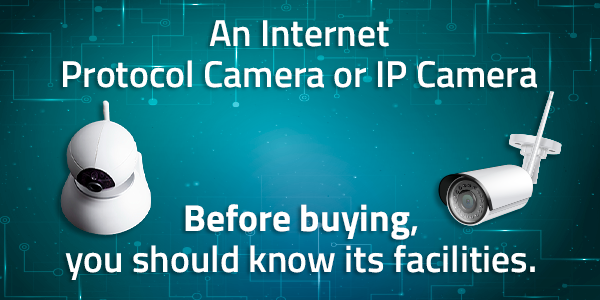In an age where security is a top priority, IP camera installation services have become essential for homes and businesses alike. These cameras offer advanced surveillance capabilities and remote monitoring. In this blog, we’ll explore the world of IP cameras, the installation process, and what you need to consider before purchasing one.

IP Camera Installation Services:
IP cameras, or Internet Protocol cameras, are digital devices that transmit video and audio data over an IP network, such as the internet. They are known for their high-resolution video quality, remote viewing capabilities, and various advanced features. Here’s how you can benefit from IP camera installation services:
- Enhanced Security: IP cameras provide superior image quality, enabling you to capture clear details. They serve as a robust deterrent against intruders and provide valuable evidence in case of incidents.
- Remote Monitoring: With IP cameras, you can access live video feeds from your smartphone, tablet, or computer. This allows you to keep an eye on your property or business from anywhere at any time.
- Scalability: IP camera systems are highly scalable. You can easily add more cameras to cover additional areas, making them suitable for both small and large properties.
- Advanced Features: IP cameras offer advanced features such as motion detection, two-way audio, pan-tilt-zoom (PTZ) capabilities, and night vision, making them versatile for various surveillance needs.
Different Types of IP Cameras:
- Fixed IP Cameras: These cameras have a static lens and provide a fixed view of a specific area. They are suitable for monitoring fixed locations, such as entryways or hallways.
- Pan-Tilt-Zoom (PTZ) IP Cameras: PTZ cameras can be remotely controlled to pan (move horizontally), tilt (move vertically), and zoom in or out. They are ideal for covering larger areas and tracking moving objects.
- Bullet IP Cameras: Bullet cameras are typically used for outdoor surveillance. They are weatherproof and have a cylindrical shape, making them suitable for monitoring specific points of interest.
- Dome IP Cameras: Dome cameras are known for their dome-shaped housings. They are often used for both indoor and outdoor surveillance and offer a more discreet appearance.
- Wireless IP Cameras: Wireless cameras connect to your network via Wi-Fi, eliminating the need for extensive wiring. They are easy to install and relocate.
Requirements Before Buying an IP Camera:
Before purchasing an IP camera, consider the following factors:
- Purpose: Determine the primary purpose of the camera, whether it’s for security, monitoring, or specific surveillance needs.
- Resolution: Higher resolution cameras capture more detailed images. Choose a resolution that meets your requirements.
- Indoor or Outdoor: Ensure the camera is suitable for your intended environment. Outdoor cameras should be weatherproof.
- Night Vision: If you need surveillance at night, select a camera with infrared (IR) LEDs for clear night vision.
- Power Source: Decide if you prefer wired or wireless cameras. Wired cameras require power and data cables, while wireless cameras are easier to install.
- Storage: Consider how you will store recorded footage. Some cameras offer local storage or cloud storage options.
- Remote Access: Choose a camera that offers remote access via a mobile app or web portal for convenient monitoring.
- Budget: Set a budget and look for cameras that offer the features you need within your price range.
In conclusion, IP camera installation services offer advanced surveillance capabilities, but choosing the right camera requires careful consideration of your specific needs and budget. By doing so, you can enhance security, monitor your property remotely, and enjoy peace of mind.
